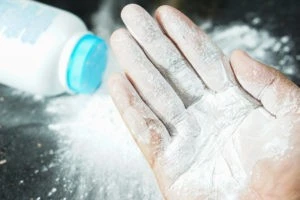
As early as 1971, researchers were looking into the relationship between talcum powder and cancer. BJOG published a study that showed participants had talc particles embedded in cancerous tumors. These tumors were growing on the cervix and ovaries. This became the first link between talcum powder used for feminine hygiene purposes and cancer of the female reproductive tract.
Talc and asbestos often occur naturally together. As such, the risk that talc-based products are laced with this known carcinogen is high, unless the mining operation and companies who use raw talc have processes in place to eliminate it.
Just five years after this study, the Cosmetic, Toiletry, and Fragrance Association—now known as the Personal Care Products Council—recommended that all companies using talc in their cosmetic and personal care products test for asbestos.
Johnson & Johnson and other manufacturers of talc-based powders claimed their products were asbestos-free and continued to market them.
Several Studies Support a Strong Relationship Between Talcum Powder Use and Certain Cancers
The relationship between talcum powder and cancer has also been confirmed by several scientific studies, meta-analyses, and case studies. This includes data to support these powders playing a role in both ovarian cancer and mesothelioma.
Ovarian Cancer
The first talcum powder cancer cases focused on ovarian cancer. Most of the current cases link the use of talcum powder on underwear, sanitary napkins, and the genitals with this type of cancer. Among the studies that support this include:
- A 2017 meta-analysis published in the European Journal of Cancer Prevention that identified a “weak but statistically significant association.”
- A 2018 report published in Epidemiology that identified “a consistent association.”
Mesothelioma
Since the link between talc and asbestos became more apparent, more and more women have filed lawsuits based on a mesothelioma diagnosis. These women generally had no other known exposure to asbestos and developed malignant pleural mesothelioma, which almost always occurs as a result of inhaling asbestos fibers.
A study published in the January 2020 issue of the Journal of Occupational and Environmental Medicine confirmed a link between talcum powder use and mesothelioma in dozens of case studies.
The Increase in Risk Remains Unknown as of August 2020
As of August 2020, it is unknown how much of a risk talcum powder use poses. We know there are thousands of women who developed one of these cancers after using talcum powder, but it is difficult to determine the exact level of risk.
One reason this is so hard to calculate is that we do not know how many women used these powders, for how long, what products, and when. Studies to determine the risks these powders pose rely on the victims to remember their personal hygiene routine from ten, twenty, thirty, or even forty years ago.
Of course, knowing the strength of the relationship between talcum powder and these cancers means very little to the victims and the families of those who passed away as a result. There is evidence to support the allegation that powder manufacturers knew about the relationship between their powders and cancer for decades, and never issued a warning to consumers.
Taking Action in a Talcum Powder and Cancer Lawsuit
As of August of 2020, there is pending multidistrict litigation regarding talcum powder products, known as MDL-2738. More than 18,000 plaintiffs are attempting to hold Johnson & Johnson and other talcum powder manufacturers accountable for their defective and dangerous products and the lack of warning about the possible cancer link.
If you believe you meet the criteria to file a lawsuit and join this MDL, our team will review your case at no expense to you. When we accept a case, we do the following:
- Keep you updated on your case
- Identify liable parties
- Communicate with all parties for you
- Gather evidence
- Determine a value for your case
There is a limited time to file a lawsuit based on the applicable statute of limitations, as well as a limited time to join MDL-2738. Act quickly to get started before time runs out.
Discuss Your Case With a Member of Our Talcum Powder Lawsuit Team Today
You can speak with a member of the talcum powder cancer lawsuit team from Friedman & Simon, L.L.P. today. Call (516) 932-0400 to discuss your cancer diagnosis, talcum powder use, and other facts of your case at no cost to you.